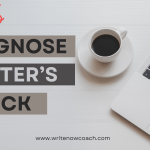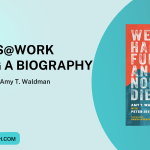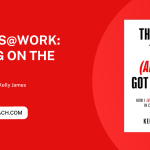Reflect on the Year, Map Your Assets
December 15, 2020
Note From Rochelle
Dear Writers,
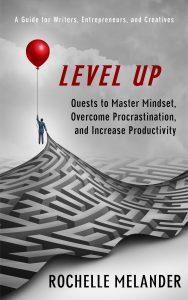 Today’s tip is based on a chapter in my book, Level Up: Quests to Master Mindset, Overcome Procrastination and Increase Productivity. Just in time for your New Year dreaming, the ebook is on sale at Amazon for just 2.99.
Today’s tip is based on a chapter in my book, Level Up: Quests to Master Mindset, Overcome Procrastination and Increase Productivity. Just in time for your New Year dreaming, the ebook is on sale at Amazon for just 2.99.
Enjoy!
Rochelle
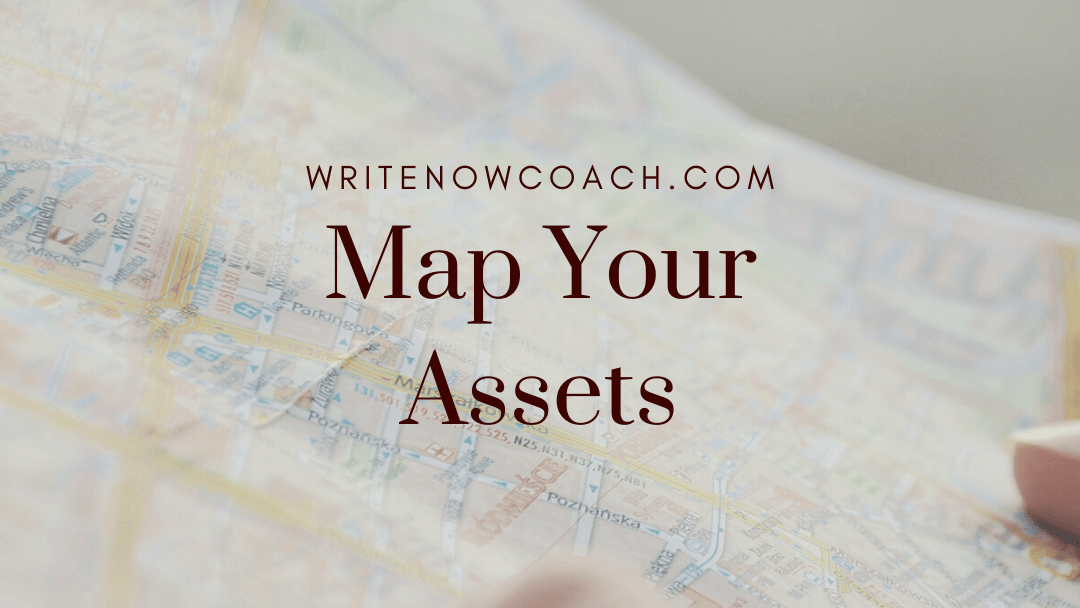
Map Your Assets
When we recognize and appreciate our assets, we transform our thinking. Instead of seeing needs and deficiencies, we see gifts and strengths. We transform negatives into positives. We see our cup as half-full.
– Luther Snow
When financial planners talk about assets, they usually mean money and material stuff, like land, houses, horses, and jewelry. While economic assets are essential—hey, we’ve got to eat—our other assets can help us create books, businesses, and articles that earn money, too.
Between gigs as an actress, Alice Wilson spent years working as a model for art classes, which taught her how to stay still for hours. When she encountered living statues in Chicago and Las Vegas, she had an idea. She put her unique talents as a performer and crafter together and constructed a costume for a statue of Willy Wonka. Since then, she’s become known as Milwaukee’s first living statue and created unique costumes for performances as a steampunk nanny, Puck, Benjamin Franklin, and more. Wilson is a perfect example of how uncovering and combining unique assets can lead to a career.
This quest will help you examine your life and determine your assets. It’s the perfect quest to do at the end of the year, as you’re dreaming about what to do next.
The Quest
Set aside at least an hour to do this quest. I use mind mapping to collect my assets, but you can also create a series of lists. Look at each category and brainstorm your assets:
- Physical Assets: Things you can touch, see, or feel.
- Individual Assets: Talents, experiences, skills, preferences, and everything you wonder about.
- Associations: The people in your life, including groups you belong to.
- Institutions: Businesses, public agencies, and nonprofit institutions you connect with.
- Economic Assets. What you own and earn.
- Passions: What you are curious and passionate about and absolutely driven to explore.
- Other Assets: Anything this list missed.
Game Play Tips
- If you come to the end of this quest and feel like you’re missing something, try looking for assets in one of these places:
- Talk to friends and family members: What assets do they see in you?
- Explore previous jobs: what cool things did you learn to do?
- Consider the unusual, inventive, or rare skills you have.
- Think about your childhood: what did you love to do?
- Let the list sit for a day or two. I’m guessing you’ll think of even more assets as you’re showering, cleaning, or exercising.
For the Win
Every time I create an asset map, I experience an overwhelming sense of gratitude—I am richer than I ever thought possible. Once you’ve finished your asset map, take a moment to appreciate your assets. Next week, we’ll combine your assets as you vision for the future.



